- Home
- Margaret Pemberton
Beneath the Cypress Tree
Beneath the Cypress Tree Read online
To Cheryl Warren
Without friends, no one would choose to live, though he had all other goods.
ARISTOTLE
Contents
Chapter One
Chapter Two
Chapter Three
Chapter Four
Chapter Five
Chapter Six
Chapter Seven
Chapter Eight
Chapter Nine
Chapter Ten
Chapter Eleven
Chapter Twelve
Chapter Thirteen
Chapter Fourteen
Chapter Fifteen
Chapter Sixteen
Chapter Seventeen
Chapter Eighteen
Chapter Nineteen
Chapter Twenty
Chapter Twenty-One
Chapter Twenty-Two
Chapter Twenty-Three
Chapter Twenty-Four
Chapter Twenty-Five
Chapter Twenty-Six
Chapter Twenty-Seven
Chapter Twenty-Eight
Chapter Twenty-Nine
Chapter Thirty
Chapter Thirty-One
Chapter Thirty-Two
Chapter Thirty-Three
Chapter Thirty-Four
Chapter Thirty-Five
Chapter Thirty-Six
Chapter Thirty-Seven
Chapter Thirty-Eight
Chapter Thirty-Nine
Chapter Forty
Acknowledgements
Select Bibliography
Chapter One
APRIL 1936
‘It’ll be a grand jaunt, lass, seeing your college friends and Oxford again.’
The pride Ella Tetley’s father always took in saying the word ‘Oxford’ was there in full measure, and Ella knew that by the time she returned home in the early hours of the next morning, the whole of Wilsden village would know where she had spent the day.
Because she understood the reason for her being such a talking point – no one else in the village had ever had the benefit of an Oxford education, far less received a first-class honours in classical archaeology – she was always patient about the interest shown in her. Her embarrassment at such attention was, however, often acute.
‘I’ve made you a packed lunch,’ her mother said, fussing around her. ‘You’ve got a long day ahead of you. I don’t want you going hungry.’
As her reunion lunch with Kate and Daphne was taking place in one of their favourite Oxford pubs, Ella had no need of the packed lunch. To have said so, though, would have been to hurt her mother’s feelings, so she put the sandwiches into her shoulder-bag.
From a rocking chair in a corner of the kitchen her grandfather said, ‘Did yer give ’er drip and bread, Alice? I allus liked drip and bread fer me snap.’
‘Of course I haven’t given Ella drip and bread!’ Alice Tetley’s outrage was profound.
Aware that he’d scored a bullseye, Jos Tetley, once the village rag-and-bone man, cackled with laughter and then said, grinning toothlessly across at Ella, ‘Is your young man tecking thee to t’station?’
‘If you mean Sam Jowett, he’s a friend, Granddad, not my young man; and yes, he is taking me to the station.’
Alice exchanged a meaningful glance with her husband. If Sam Jowett wasn’t Ella’s ‘young man’, it wasn’t for the want of his trying. And as he was the son of a doctor and he, too, would soon be a qualified doctor, nothing would have pleased her and Alfred more than that Sam’s efforts should meet with success.
The clock above the kitchen table struck seven and Alfred Tetley slid his packed lunch into a pocket of his donkey jacket. ‘I’ll ’appen see you as I come off my shift and as you start yours,’ he said to Alice, and then, to Ella, ‘You’d be better off waiting for t’Jowett lad out on t’doorstep than in t’kitchen.’
Recognizing the truth of this, Ella buttoned up her coat, slid the strap of her bag over her shoulder, gave her mother a goodbye kiss and followed her father out of the house.
Once on the doorstep with the door closed behind her, she watched her father stride off in the direction of the local mill. Their house was one of a small row of terraced cottages on the outskirts of the village and there were no houses on the other side of the road, only rising open land and, at the foot of the rise, a field – the retirement home of Bessie, the piebald mare that had once pulled her granddad’s rag-and-bone cart.
As she waited for Sam to turn into the road on his motorbike and sidecar, she thought of the past year and of how different it had been from Kate’s year, or Daphne’s. With a degree in archaeology under her belt and funded by middle-class parents, Kate had enrolled for postgraduate study in prehistoric, Greek and Roman pottery at the world-renowned British School at Athens. Daphne, the daughter of an earl, had left university with a first in Classics and had put further study or job-hunting on the back-burner. Instead she had been presented at Court and had thrown herself wholeheartedly into the glamorous social life of a debutante.
The rarefied options open to Kate and Daphne had not been open to Ella. She’d had to find work straight away and had done so on a Roman dig in Somerset. What she really wanted, though, was a position on a dig abroad. There was a huge dig presently taking place at Amarna, in Egypt, and a dig on the Greek island of Ithaca that, though far smaller than the Amarna dig, had the potential of becoming just as big, if the suspected existence of a Bronze Age temple there was confirmed.
The sound of Sam’s motorbike and sidecar trundling up the road broke into her thoughts. He came to a halt a few feet away from her. Keeping the engine ticking over, he said in amusement, ‘You’re looking preoccupied. What is it this time? Roman coins? Roman votive offerings?’
‘Neither,’ she said amiably. Ignoring the sidecar, she straddled the pillion and covered her flame-red hair with a scarf to stop it blowing in her eyes. ‘I was wondering how I could get a position on a dig abroad. Egypt at a pinch, but Greece for preference.’
‘Do you have to work on a dig? Why not try for a position at a museum?’
She knew what he really meant was why couldn’t she get a permanent job near to home? A job that would keep her in Yorkshire, so that he would be able to see more of her.
As he revved the engine, she held on to his waist, shouting above the engine noise, ‘Museum work is boring, compared to working on a dig. Being on a dig is where all the exciting things happen. Can you imagine how Howard Carter felt breaking through into Pharaoh Tutankhamun’s tomb? Or Sir Arthur Evans when he realized he’d unearthed the palace of a Bronze Age Cretan king?’
Sam couldn’t and, knowing it was useless to try, put the bike into gear.
Seconds later they were rounding the corner by the Ling Bob public house and roaring up the short hill that led away from Wilsden’s outskirts. From the top of the hill there was a magnificent view of the moors and then, for the next five miles, it was all downhill, gently at first and then, as they neared Bradford’s soot-blackened city centre, far more steeply.
They halted outside the Exchange station with fifteen minutes to spare before her train left.
‘Have you time for a quick cup of tea?’ Sam took off his motorcycle goggles and ran a hand over straw-coloured hair.
‘I don’t think so. If the train is already in the station I’d like to get straight on it, if you don’t mind, Sam.’
He said, hiding his disappointment, ‘Then let’s get your ticket and maybe tomorrow night we could go to the cinema? The Scarlet Pimpernel is showing at the Rialto.’
‘That would be lovely.’ She meant it. The film starred Leslie Howard and he was one of her favourite actors.
Once she had her ticket, Sam found her an empty carriage on the trai
n. ‘Because I know you like reading when you’re travelling,’ he said as she stepped into the carriage and he closed the door after her, ‘and, with luck, there’ll be no one to disturb you all the way to Oxford.’
The carriage window was down and she rested her arms on its sill. ‘Where are you going from here, Sam? Straight back to Wilsden?’
‘No. I’m going to head to Ilkley and blow the cobwebs away by riding over the moor.’
‘Then take my picnic lunch, because I have no need of it.’ Opening her shoulder-bag, she took out the packet of sandwiches her mother had given her and handed them to him. ‘Mum made them, and I don’t know what’s in them. Probably potted meat.’
All down the length of the train, carriage doors were closing. The whistle blew. Hasty goodbyes were shouted. Sam wished he’d had the nerve to kiss her goodbye before she’d stepped into the carriage, but as Ella didn’t regard him in a romantic light, a busy station platform hadn’t seemed the best place to try, yet again, to get her to think differently about him.
A much better time and place would be when they went to see The Scarlet Pimpernel.
‘’Bye,’ he shouted as, amid great billows of steam, the train began moving away. ‘I’ll be here tonight to meet you off the last train!’
‘Thank you,’ she shouted back at him. The last train from Oxford didn’t get in to Bradford until midnight, well after buses to Wilsden had stopped running. Without Sam meeting her and giving her a lift home, she would have had to get a taxi, and a taxi to Wilsden would have been expensive. Gratefully she blew him a kiss.
Her gesture transformed the expression on Sam’s good-natured face. Smiling broadly, he blew a kiss back.
Ella, busy closing the window, saw neither his reaction nor his response.
As the train steamed out of the station she made herself comfortable in a corner seat and, with Sam already far from her thoughts, took a copy of The Palace of Minos out of her shoulder-bag. Written by Sir Arthur Evans, it was his own account of his discovery of the Bronze Age palace that he had spent more than thirty years excavating at Knossos, in Crete.
Ever since she had been a child, Ella had been enchanted by the legends of ancient Greece. Her favourite story had been that of Theseus slaying the Minotaur, the half-man, half-bull monster that lived in the centre of a labyrinth at the palace of King Minos.
As he had excavated at Knossos, Sir Arthur had found hundreds and hundreds of artefacts linking history to legend: coins showing images of a labyrinth, and others bearing the features of a Minotaur; a wall painting depicting a young man somersaulting over the back of a bull; drinking vessels shaped like the head of a bull; ivory figurines of bull-leapers in mid-air. As the Knossos dig had continued, it had become obvious that Sir Arthur had unearthed not only a palace, but a previously unknown civilization – a civilization that he had named Minoan.
Though all the major work of excavation was now complete, excavations of tomb sites near to the palace were still taking place, and Kate’s older brother, Kit, was field director at one of them.
When Kate had casually mentioned this to Ella and Daphne, even Daphne had been impressed. They had been walking down a busy corridor towards the quad and, moving the pile of books she was carrying from one arm to the other, Kate had said, ‘What really pleases Kit is that his accommodation is at the villa Evans built for himself and his fellow archaeologists when the excavation of the palace was taking place. Evans is rarely there now, but as study at the site is ongoing, the Villa Ariadne still serves as home to archaeologists and scholars working there.’
Such a close link with the most famous archaeological site of the century had seemed incredible to Ella, but Kate never made a big thing of Kit’s connection to Knossos. Like Daphne, who carried the title Lady Daphne St Maur, she was completely without side.
Despite her innate self-confidence, coming from the background she did, Ella had found her first few weeks at Oxford daunting. Her years at Bradford Girls’ Grammar School had, with no effort on her part, smoothed out her broad Yorkshire accent to such an extent that her grandfather was always accusing her of having become ‘posh’.
She hadn’t sounded posh at St Hugh’s. Though the stated aim of the college was to admit students regardless of their educational or social background, no one in her year came from her kind of working-class family. For the first time in her life Ella had found it hard to fit in; or she had until she’d made friends with Kate and Daphne.
It was her parents who’d had difficulty in taking in their stride her friendship with Kate and Daphne.
‘A lass whose father is a magistrate is one thing,’ Alfred Tetley had said, speaking of Kate, ‘but a lass whose father is an earl is quite another. I’d leave ’er to ’er own kind if I was you, love. They’re a rum lot, the aristocracy, and best avoided.’
Knowing her father would think differently about Daphne if he was ever to meet her, it was advice Ella hadn’t taken.
During the long vacation in their second year at St Hugh’s the three of them had spent several weeks as volunteers on a Roman dig in Northumberland. Kate, whose family home was in Canterbury, had met up with Daphne in London and then the two of them had travelled in Daphne’s nifty open-topped car to Yorkshire in order to pick up Ella.
It was such a golden opportunity for her parents to meet Kate and Daphne that Ella had suggested they stay overnight at the Ling Bob.
A visit that on so many levels could have been awkward had, instead, gone without a hitch.
On the evening of their arrival Kate and Daphne had joined the Tetley family for a fish-and-chip supper and later, when Ella had walked Kate and Daphne up the street to the pub, her father and granddad, taking it as an ideal opportunity for a pint of bitter each, had walked with them. Once in the pub, Jos had insisted on teaching Kate and Daphne how to play darts. By the end of the evening there was no question of Alfred holding to his belief that, as a member of the aristocracy, Daphne was best avoided. Instead, as he’d walked back home in the moonlit darkness with Jos and Ella, he’d said, ‘What a grand couple o’ lassies yon two are. It’s a shame for ’em they aren’t Yorkshire-born.’
Ella’s thoughts had now strayed so far from the book she was reading that she laid it down, surprised to see, as she looked out of the window, that they were leaving Coventry and would soon be in Oxford. Happy anticipation flooded through her. It was going to be great seeing Kate and Daphne again and she couldn’t wait to be in The High, walking past buildings, pubs and shops that were as familiar to her as any in the centre of Bradford.
Though Kate hadn’t said so in her letters, Ella was certain Kate couldn’t have spent a year in Athens without having travelled to Crete to spend time with Kit at Knossos, and the prospect of Kate having first-hand gossip from such a famous site was thrilling. Now that Kate had finished her postgraduate studies she would be looking for a job, and as the train flashed past fields and woods, Ella wondered if Kit might help her find one; that perhaps he might even find her one at the dig of which he was field director. If he didn’t, then perhaps she and Kate could find work together somewhere; perhaps on the second season of the Somerset dig? Or perhaps on one of many Roman excavation sites in Northumberland?
She slid The Palace of Minos into her shoulder-bag. The best thing of all would be if Daphne decided she’d had enough of being a debutante and was finally going to put her first-class degree to good use.
That would be the ultimate: the three of them working together on the same site – especially if the site was Bronze Age and somewhere in Greece.
Chapter Two
Kate Shelton settled herself in the front passenger seat of her father’s dark-green Riley and said, with loving exasperation, ‘There’s really no need for you to take me to the station, Daddy. I’ve got plenty of time and I could walk it in five minutes.’
‘That’s not the point, Katherine.’ There was equal loving exasperation in her father’s voice.
‘Then what is?’
> Giles Shelton put the car into gear and pulled away from the front of his eighteenth-century home. ‘The Capuchins’ lay in the shade of Canterbury Cathedral and was one of the finest detached houses within the city walls, its only drawback being that its Georgian splendour looked out on to an ancient cobbled street barely wider than his car.
‘First of all, it’s my pleasure to chauffeur you around whenever I have the opportunity to do so,’ he said, carefully navigating into another street only a little wider, ‘and secondly, in my day, no young woman would set off for a railway station unaccompanied.’
Kate laughed. ‘It’s 1936, Daddy. Not 1906. And I’ve just come back from a year in Greece, somewhere I travelled to and returned from unaccompanied.’
‘And you may remember,’ Giles said, ‘that I was very opposed to you doing so.’
Kate did remember and knew she had been very fortunate that he had, after much persuasion, sanctioned her year of study in Athens. It had been the long journey – rail to Italy, then down the length of Italy to Brindisi, followed by an overnight steamer to Piraeus – that had caused him most concern, and she shuddered to think what he would have thought of some of the solo trips she had made from Athens to other parts of Greece.
To get to Mycenae, a major archaeological site only fifty-six miles from Athens, she’d sat in a stuffy bus for two days, her travelling companions black-skirted, headscarfed peasant women with baskets of fruit and vegetables on their knees, which they had either just bought at a local market or were about to sell at one. On the last leg of her journey the woman next to her had been nursing a cockerel in a wicker cage.
Suddenly suspicious that Kate wasn’t listening to him, Giles Shelton cleared his throat and said, as they drove beneath the arch of a medieval gatehouse, ‘And so what do you think, Kate? Are you in agreement with your mother and I that a position at the museum would be an ideal first job choice for you?’
Kate dragged herself back into the present. ‘What museum? The British Museum? I should be so lucky. Permanent jobs like that are terrifically hard to come by, and are impossible for someone fresh from postgraduate study with no job experience behind them.’

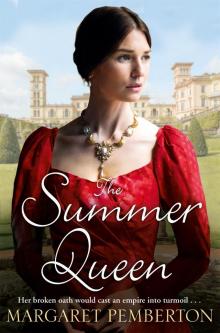 The Summer Queen
The Summer Queen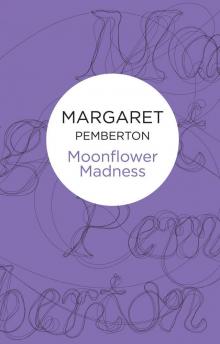 Moonflower Madness
Moonflower Madness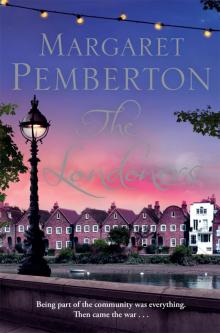 The Londoners
The Londoners The Flower Garden
The Flower Garden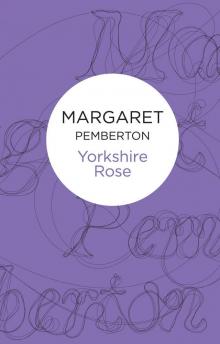 Yorkshire Rose
Yorkshire Rose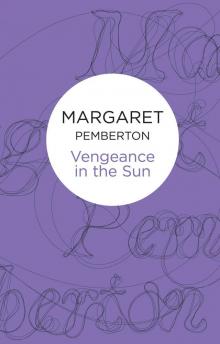 Vengeance in the Sun
Vengeance in the Sun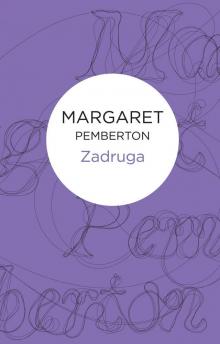 Zadruga
Zadruga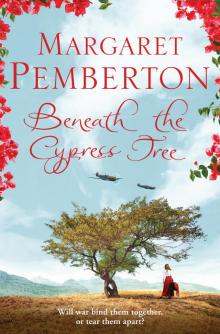 Beneath the Cypress Tree
Beneath the Cypress Tree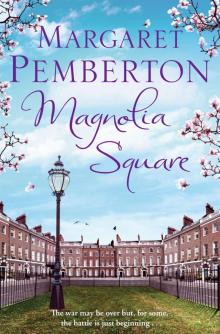 Magnolia Square
Magnolia Square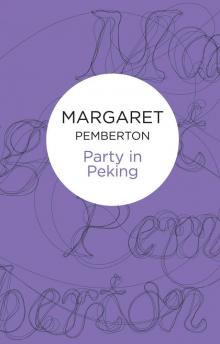 Party in Peking
Party in Peking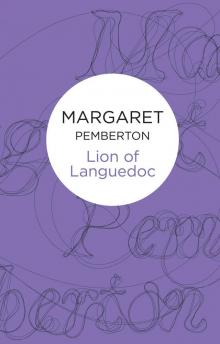 Lion of Languedoc
Lion of Languedoc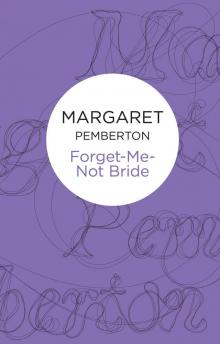 Forget-Me-Not Bride
Forget-Me-Not Bride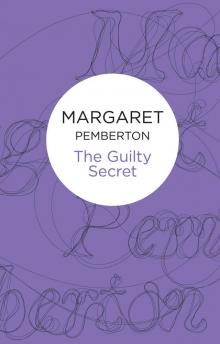 The Guilty Secret
The Guilty Secret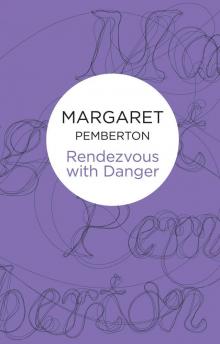 Rendezvous With Danger
Rendezvous With Danger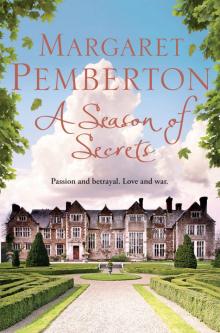 A Season of Secrets
A Season of Secrets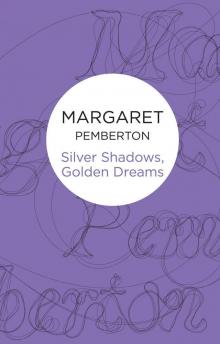 Silver Shadows, Golden Dreams
Silver Shadows, Golden Dreams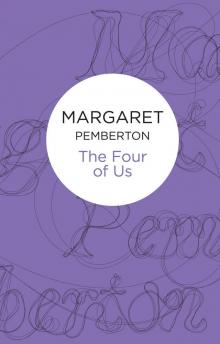 The Four of Us
The Four of Us Devil's Palace
Devil's Palace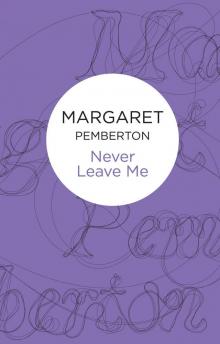 Never Leave Me
Never Leave Me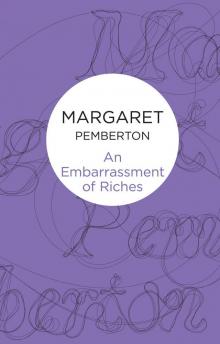 An Embarrassment of Riches
An Embarrassment of Riches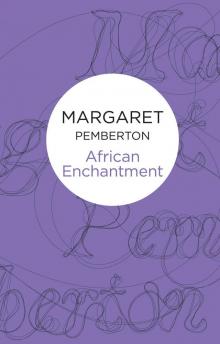 African Enchantment
African Enchantment White Christmas in Saigon
White Christmas in Saigon Coronation Summer
Coronation Summer A Multitude of Sins
A Multitude of Sins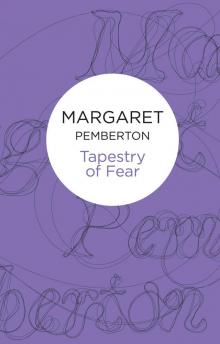 Tapestry of Fear
Tapestry of Fear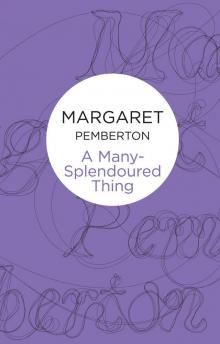 A Many-Splendoured Thing
A Many-Splendoured Thing